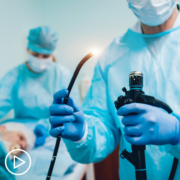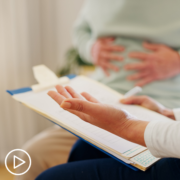How Can Gastric Cancer Patients in Rural Areas Access Specialists?
How Can Gastric Cancer Patients in Rural Areas Access Specialists? from Patient Empowerment Network on Vimeo.
How can rural gastric cancer patients gain access to specialists? Expert Dr. Jun Gong from Cedar-Sinai Medical Center discusses access to additional medical consults and a way to access more Asian and Hispanic patient groups.
[ACT]IVATION Tip
“…for challenges faced with timely access to Asian and Hispanic subgroups and all racial groups, in my opinion, is to seek…it’s always appropriate to seek second or third opinions particularly at larger comprehensive cancer centers for the availability of clinical trials or whether it’s about questions about standard of care therapies or actually just questions about can we have a supportive service that you may offer that our local community providers may not offer?”
Download Resource Guide | Descargar guía de recursos
See More from [ACT]IVATED Gastric Cancer
Related Resources:

|

|

|
Transcript:
Lisa:
So there are maybe some patients who are in more rural communities or go to smaller cancer centers. You’re at a very large center that has a lot of these resources. Do you think there is some benefit to patients if they have the ability to have a consult done by a specialist like yourself who only see, or who sees mostly gastric cancer patients? Can they tap into that like as a one-time consult when they’re diagnosed, particularly if they have metastatic disease, and could they also tap into the resources of a larger center?
Dr. Jun Gong:
That is a great question, Lisa. And yes, we do do that. We, as part of a large urban medical center here, we have a great relationship with our community oncologist and primary care doctors and other subspecialists where we are often referred for a second opinion or a third opinion. Sometimes it’s really, is this the best treatment that I have? Or it’s simply a question of are there clinical trials because we would like to refer to an urban medical center, a larger comprehensive cancer center for clinical trial options.
And here what I would like to add is that the post pandemic period has really afforded, in my opinion, an easier way to do consultations. I know it’s specific to certain institutions and certain centers, but I actually am okay with virtual medicine consultations for those who are…who find it difficult to travel to an in-person visit, again, I can’t speak for all other cancer centers or oncologists, but we at least offer this ability to do that, to help with that barrier of transportation. And when they are connected with us sometimes if we are able to, we can even follow peripherally, almost like an extra care partner with the main local doctor who’s driving more of the day-to-day, and we’re providing our recommendations as an extension from an urban medical center.
Lisa:
Great. Thank you for that information. I know as a cancer patient and a patient advocate, I will always recommend seeking out a consult from another person just to have another set of eyes on, particularly if it’s a specialist like yourself who sees primarily that type of cancer. So, thank you.
Dr. Jun Gong:
My activation tip for challenges faced with timely access to Asian and Hispanic subgroups and all racial groups, in my opinion, is to seek…it’s always appropriate to seek second or third opinions – particularly at larger comprehensive cancer centers – for the availability of clinical trials or whether it’s about questions about standard of care therapies or actually just questions about can we have a supportive service that you may offer that our local community providers may not offer? Or can you help us in a later stage of our treatment? Not just a one-time consultation, really just raising awareness that we do have ancillary staff that are very, very, very helpful in terms of addressing a lot of these risk, healthcare access barriers.
The one thing I would’ve liked to add was I think involving church groups is a really, really great way for Asians and Hispanics, because they are so heavily invested in attending church services. And that’s one of the innovative approaches from the Cedars-Sinai perspective is that we actually have a disparity center, a center of community outreach where we are actually engaging both Asians and Hispanics and other racial groups with their leaders in the churches, the local churches, to actually educate and promote awareness.



